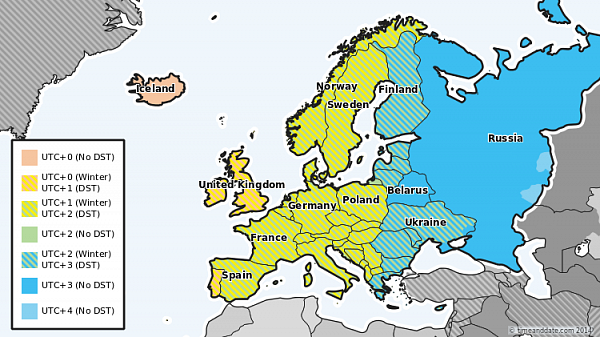EU Parliament Votes to Re-Evaluate DST in Europe
The European Parliament is urging the EU Commission to consider putting an end to setting the clocks back and forward 1 hour for Daylight Saving Time (DST).

European Parliament in Strasbourg, France.
©iStockphoto.com/AdrianHancu
Watered-Down Proposal
The 28-nation body approved a resolution to assess the merits of the yearly clock changes every spring and fall. The resolution passed the vote after 384 Members of the European Parliament (MEP) voted in favor, while 153 MEPs voted against.
A more stringent proposal, put forward by Finland, which called for a more straight-forward process of abolishing yearly clock changes, did not get a majority of the votes.
Pressures the EU Commission
With Thursday's vote, the EU Parliament puts pressure on the Union's regulatory body, the European Commission, to consider removing DST. In the past, the Commission has been reluctant to touch DST regulation in the European Union.
EU Time Would Still Be Unified
The Parliament added that any changes to DST rules in Europe should not disrupt the EU's unified clock regime. While Europe is divided into several time zones, most EU countries have synced their yearly clock changes since 1980. The resolution which has now been approved spells out that any changes to the DST schedule should affect all countries equally and simultaneously.
Who invented DST: Europe or Canada?

Europe's time zones.
©timeanddate.com
Time Zones in Europe
Europe is divided into four main time zones, spanning from UTC/GMT to UTC+3.
In all states of the European Economic Area (EEA), except in Iceland, DST currently begins on the last Sunday in March and ends on the last Sunday in October each year. This includes non-EU countries like Switzerland and Norway. Iceland is the only EEA state without clock changes.